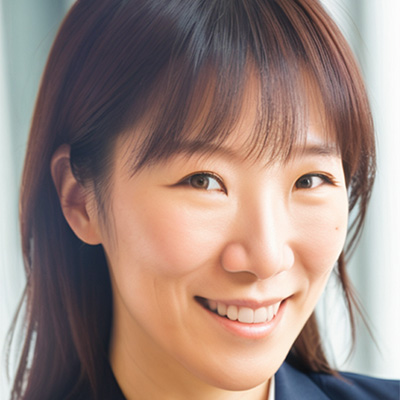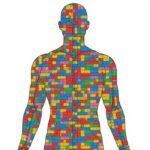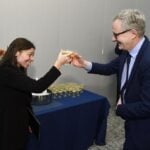Three Questions: Quantum Solutions

Yun Chen, associate professor of mechanical engineering and associate researcher at the Institute for NanoBioTechnology is one of six inaugural recipients of the National Science Foundation Trailblazer Engineering Impact Award. Her focus is on engineering a class of synthetic proteins that could be a game changer in cellular biology.
1. How is your approach trailblazing?
We are in the middle of the “second quantum revolution,” with quantum technology promising unprecedented advances. This project is a first step toward realizing quantum mechanics’ potential in biomedicine. “Are the laws of quantum physics important for life?” was a question raised by early quantum pioneers. This led to the emerging field of quantum biology, where quantum phenomena may regulate certain biological functions. The development of a new class of synthetic proteins, quantum-enabled dial (QED), could serve as a testbed for in vivo measurements that validate theoretical predictions in quantum biology.
2. What’s the main objective of your project?
QEDs can control biochemical reactions, harnessing the power of quantum mechanics in engineered biomolecules to actuate biological functions. We’re developing genetically encoded QEDs—recombinant proteins where the backbone is a spin-correlated radical pair that forms when excited by light. I’ll use this magnetosensitivity to demonstrate that specific biochemical reactions can be actuated by QED. I’ll also explore the possibility of exciting QEDs without light, enabling applications in thick tissues.
3. What transformative applications could this technology bring?
This will impact many fields because QED activity can be tuned on a continuous scale. It can be excited by light or by chemical energy. It is modular and can be designed to control numerous enzymatic activities, which can be spatially addressed by patterned magnetic fields. Lastly, QED has long-lived coherence time, the most desirable feature for quantum computing. Because of all these merits, QED can be used to solve grand challenges in synthetic biology, tissue engineering, medicine, and quantum computing.
Story is from the winter 2025 edition of JHU Engineering Magazine.
Latest Posts
-
 Year in Review 2025
January 5, 2026
Year in Review 2025
January 5, 2026
-
 Cellular building blocks may enable new understanding of the body’s “machinery”
December 19, 2025
Cellular building blocks may enable new understanding of the body’s “machinery”
December 19, 2025
-
 Biomedical Engineer Jamie Spangler Receives President’s Frontier Award
December 15, 2025
Biomedical Engineer Jamie Spangler Receives President’s Frontier Award
December 15, 2025


